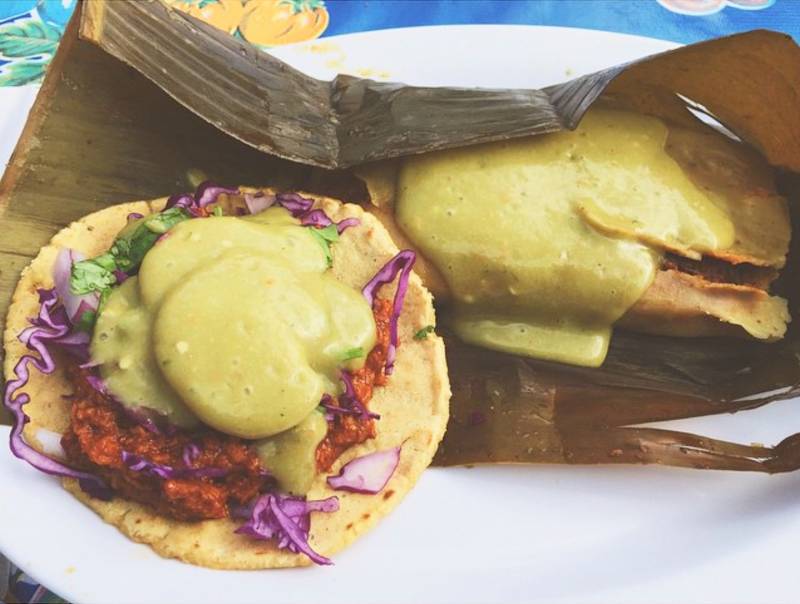For a lot of us in the Bay Area, it’s like watching the rest of the country catch up. New waves of lab-engineered alternative proteins are sweeping the nation. They promise to be so much like their meat muses that it’s hard to tell the difference.
Los Angeles’s Beyond Meat has made waves with its rising stocks and its beef, chicken and pork-inspired products. These now include patties and sausages sold at fast food chains like Carl’s Jr. and Subway. The Redwood City-based Impossible Foods first debuted its burger patty at upscale restaurants like Momofuku Nishi in New York and San Francisco’s now-closed Jardinière before scaling up through a partnership with Burger King last year. With their marketing language and their venture capital funding models, both companies are more Silicon Valley than Bay Area natural grocery store.
Bay Area history is replete with vegan “meats.” Some, like lentil and black bean burgers, are impossible to mistake with beef. They proudly stand, or rather lay, as legume patties. But for years, a variety of Bay Area restaurants and grocery stores have imitated the fleshy textures of beef, poultry and pork to much success. At Chinese restaurants in the Bay and beyond, vegan meats absorb sauces and hold chew convincingly—even though they’re genetically closer to the broccoli on the plate beside them than any poultry product. In fact, fake meat likely first emerged in Chinese cuisine as early as the 7th century.
At Layonna Vegetarian Health Food Market in Oakland’s Chinatown, there is no language around “optimized protein,” but rather shelves and fridges full of plant-based proteins, in the shape of chicken nuggets, shrimps and more. The market, which provides wholesale meat substitutes for restaurants all over the Bay Area, including R&G Lounge and The Butcher’s Son, has been around since at least 1996. That’s co-owner Samuel Wong’s estimate. Wong took over the market, which imports a lot of its goods from Taiwan, last January from the now-retired Layonna Wang.
“I spent over two months with her before she handed it over to me,” he says. “I was a cashier. I was a delivery driver. She questioned me a lot of times. She doesn’t want people to take over and then end [the business].” Since assuming control, Wong has noticed a big growth in his wholesale business. That includes new customers as well as increased demand from longtime clients.

Indeed, the demand for meat-free meat shows no sign of slowing. This year, Impossible Foods is shifting its attention to pork while Beyond Meats eyes chicken as its next big game. Last summer, the latter teased a fried-chicken product at a KFC in Atlanta, which sold out in five hours. As consumers wait and see what new batches of meat-free alternatives these large-scale companies cook up, Bay Area residents can revisit some old, faithful favorites that serve vegan and vegetarian proteins with flavors from across the world.
San Francisco
Rhea’s Deli, the Mission district deli and sandwich shop, offers two meat-free options, including a marinated “vege-beef” steak sandwich. Their beloved vegan BBQ chicken sandwich features Layonna’s chicken drumsticks dressed with plenty of pickled fixings and chili sauce.
